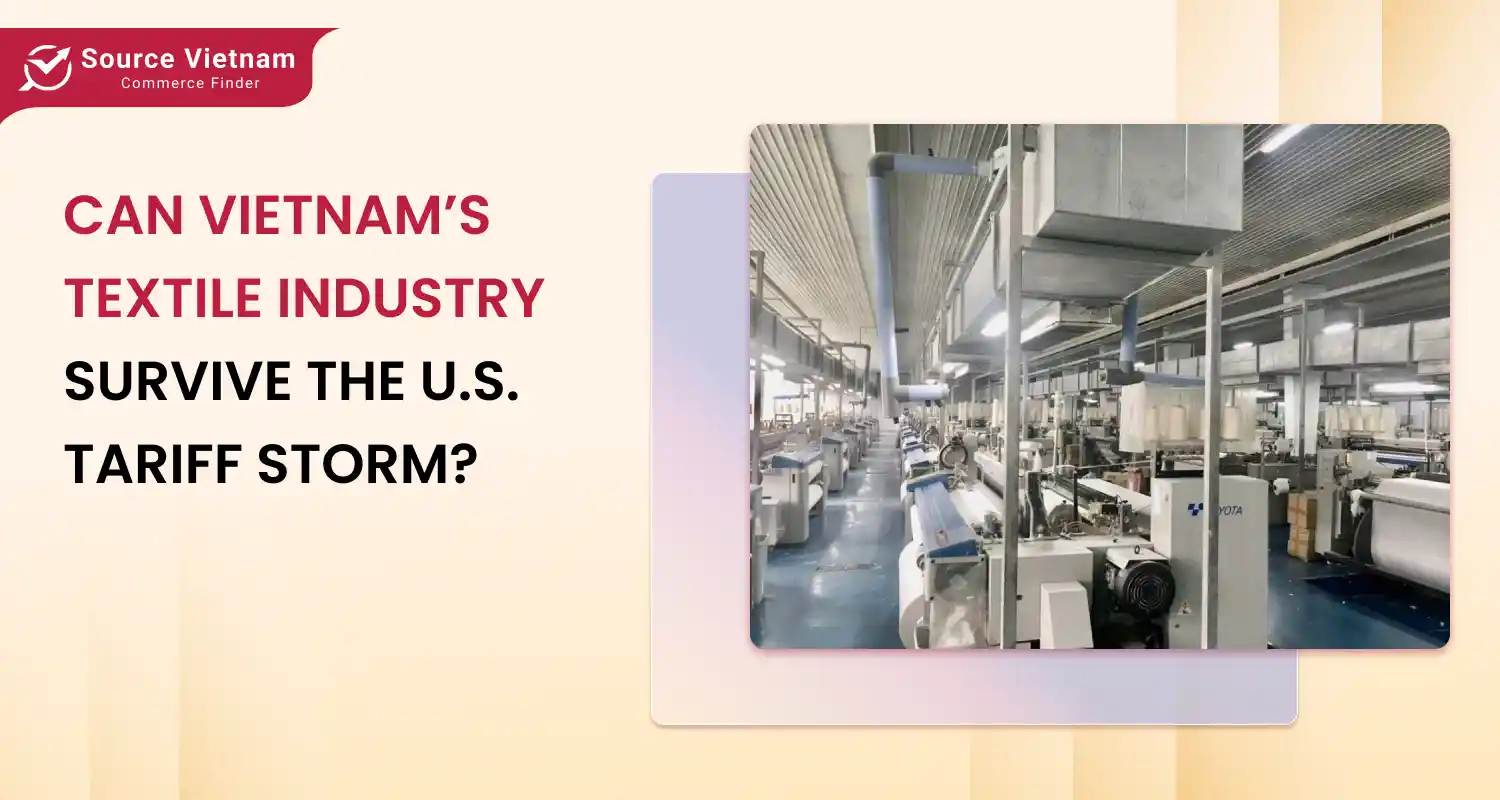Vietnam’s textile and garment industry, a vital pillar of its economy, is now navigating turbulent waters. A newly proposed 46% tariff by the U.S on Vietnamese textiles could shake up the sector’s future. Yet, in every challenge lies an opportunity.

In this blog, we break down what’s happening, what it means for Vietnam’s textiles and exporters, and how the country is adapting to turn risk into resilient.
What’s the issue with the U.S?
The U.S has proposed a significant tariff increase on textile and garment imports from Vietnam jumping from average of 15-16% to a staggering 61-62%. This change would affect nearly 40% of Vietnam’s textile exports, which currently go to the U.S.
What does that mean? Vietnamese products will suddenly become far more expensive for U.S buyers, putting them at a disadvantage compared to suppliers from other countries not facing similar duties.
Immediate impact on Vietnamese exporters
The fear of higher tariffs is already rippling across the sector. Here’s what’s happening on the ground:
- Order cancellations: some U.S buyers are pausing or canceling orders due to uncertainty.
- Rush to ship early: manufacturers are scrambling to export goods before the new tariffs kick in.
- Job insecurity: as demand falters, several textile factories have had to reduce labor causing worker anxiety.
Why this hurts more than it should
Vietnam’s textile success is built on a global supply chain, with much of the fabric and raw materials coming from China and India. But here’s the kicker: both those countries are also facing U.S tariffs.
That means:
- Raw material costs are rising
- Final products are getting even more expensive
- Margins are shrinking
Turning crisis into opportunity
Despite these hurdles, Vietnam isn’t standing still. Industry leaders leaders and government agencies are working on strategies to make the sector more self-sufficient and competitive.
Expanding to new markets
Vietnam is pushing to reduce its heavy reliance on the U.S. by expanding exports to:
- Europe
- Japan
- South Korea
- Emerging economies in Southeast Asia
This approach will take time, but it’s a smart long-term move.
Building local supply chains
Investments are being made to develop domestic sources of fabric and accessories, which could:
- Lower costs
- Speed up production
- Reduce exposure to global trade shocks
Investing in technology
From automation to digital production management, tech is helping manufacturers:
- Increase productivity
- Improve quality
- Cut waste and energy usage
The sector is slowly evolving from low-cost, labor-intensive production to high-tech, value-added manufacturing.
Government support and diplomacy
Vietnam’s government is:
- Engaging in diplomatic talks with the U.S.
- Considering tax relief and subsidies for affected businesses
- Working to accelerate trade deals that reduce tariffs in other markets
What’s the future look like?
The U.S. tariff threat is a serious setback — but it’s also a wake-up call.
Vietnam’s textile sector now has a chance to:
- Innovate smarter
- Export broader
- Produce greener
- Grow stronger
Yes, 2025 and beyond will be challenging. But with strategic shifts, Vietnam could emerge as a more resilient and future-ready global textile leader.
Final thoughts
The storm is real, but Vietnam’s textile industry has weathered tough times before. With smart moves, quick adaptation, and global awareness, it can turn this short-term disruption into long-term growth.
And for global buyers? Don’t count Vietnam out just yet.
Explore the latest business insights and market shifts with SourceVietnam.com